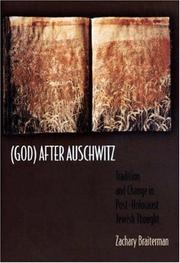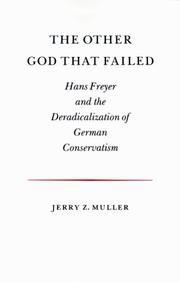| Listing 1 - 5 of 5 |
Sort by
|
Book
ISBN: 9053521224 Year: 1996 Publisher: Amsterdam Boom
Abstract | Keywords | Export | Availability | Bookmark
 Loading...
Loading...Choose an application
- Reference Manager
- EndNote
- RefWorks (Direct export to RefWorks)
Martin Heidegger ; vert. Mark Wildschut en Chris Bremmers ; met een inl. door Hans-Georg Gadamer --- kunst --- kunsttheorie --- esthetica --- Heidegger Martin --- kunstfilosofie --- 7.01 --- Aesthetics --- philosophy of art
Book
ISBN: 9053520384 Year: 1993 Publisher: Amsterdam Boom
Abstract | Keywords | Export | Availability | Bookmark
 Loading...
Loading...Choose an application
- Reference Manager
- EndNote
- RefWorks (Direct export to RefWorks)
Aesthetics --- Hans-Georg Gadamer °1900 (Marburg) --- Filosofie ; wijsgerige hermeneutiek --- Gadamer, Hans-Georg --- Kunstfilosofie --- 1.07 --- Hans-Georg Gadamer ; Inleid. Guy Widdershoven ; vert. Rianne Heitmeijer --- Gadamer Hans-Georg --- hermeneutiek --- filosofie --- kunstfilosofie --- cultuurfilosofie --- 130.2 --- 7.01 --- 14 GADAMER --- Filosofie ; filosofen (A - Z) --- aesthetics --- 7.01 Esthetica. Kunstfilosofie. Kunsttheorie. Algemene problemen inzake kunst --- Esthetica. Kunstfilosofie. Kunsttheorie. Algemene problemen inzake kunst
Book
ISBN: 1614511284 1306091527 1614511020 1614511012 Year: 2013 Publisher: De Gruyter
Abstract | Keywords | Export | Availability | Bookmark
 Loading...
Loading...Choose an application
- Reference Manager
- EndNote
- RefWorks (Direct export to RefWorks)
This book explores the phenomenon of the Third Reich from a philosophical perspective. It concentrates on the ways in which the subjects and experiences of Nazi Germany, the Holocaust and Anti-Semitism are conceived by eight German thinkers from the Continental tradition. These eight intellectuals include Martin Heidegger, Hannah Arendt, Karl Löwith, Carl Schmitt, Ernst Jünger, Jean Améry, Hans-Georg Gadamer, and Jan Assmann. Based on careful philosophical examinations of both known and unknown texts of these eight thinkers (including an English translation of two forgotten texts by Schmitt and Jünger), this study exposes and then explores the tension between ideology and philosophy, between submission to authority and genuine critical thinking, all of which constitute the essence of the Continental philosophical tradition.
Holocaust, Jewish (1939-1945) --- Mass murder --- National socialism and philosophy. --- Philosophy, German --- Moral and ethical aspects. --- Philosophy and national socialism --- Philosophy --- Multicide --- Murder, Mass --- Murder --- Mass murder. --- Adolf Eichmann --- Ernst Jünger --- Hannah Arendt --- Hans-Georg Gadamer --- Jews --- Judaism --- Karl Löwith --- Martin Heidegger --- Nazism

ISBN: 0691059411 9786612935213 1282935216 1400822769 1400811120 9781400811120 9780691059419 9781400822768 9781282935211 6612935219 1400815274 Year: 1998 Publisher: Princeton, N.J. : Princeton University Press,
Abstract | Keywords | Export | Availability | Bookmark
 Loading...
Loading...Choose an application
- Reference Manager
- EndNote
- RefWorks (Direct export to RefWorks)
The impact of technology-enhanced mass death in the twentieth century, argues Zachary Braiterman, has profoundly affected the future shape of religious thought. In his provocative book, the author shows how key Jewish theologians faced the memory of Auschwitz by rejecting traditional theodicy, abandoning any attempt to justify and vindicate the relationship between God and catastrophic suffering. The author terms this rejection "Antitheodicy," the refusal to accept that relationship. It finds voice in the writings of three particular theologians: Richard Rubenstein, Eliezer Berkovits, and Emil Fackenheim. This book is the first to bring postmodern philosophical and literary approaches into conversation with post-Holocaust Jewish thought. Drawing on the work of Mieke Bal, Harold Bloom, Jacques Derrida, Umberto Eco, Michel Foucault, and others, Braiterman assesses how Jewish intellectuals reinterpret Bible and Midrash to re-create religious thought for the age after Auschwitz. In this process, he provides a model for reconstructing Jewish life and philosophy in the wake of the Holocaust. His work contributes to the postmodern turn in contemporary Jewish studies and today's creative theology.
Holocaust (Jewish theology). --- Judaism --- Theodicy. --- Holocaust (Jewish theology) --- -Theodicy --- Evil, Problem of (Theology) --- God --- Permissive will of God --- Problem of evil (Theology) --- Good and evil --- Theodicy --- Jews --- Religions --- Semites --- Permissive will --- Will, Permissive --- Religious aspects --- Religion --- Holocauste, 1939-1945 --- Théodicée --- Judaïsme --- Aspect religieux --- Histoire --- Judaism - 20th century. --- Judaism -- 20th century. --- Abraham Joshua Heschel. --- Absolute (philosophy). --- Aggadah. --- Agnon. --- Anguish. --- Antinomianism. --- Apocalyptic and post-apocalyptic fiction. --- Arnold Eisen. --- Atheism. --- Avi Weiss. --- Bible. --- Book of Deuteronomy. --- Book of Job. --- Book of Leviticus. --- Bruno Bettelheim. --- Buber. --- Censure. --- Christianity and antisemitism. --- Deity. --- Deuteronomist. --- Divine judgment. --- Elie Wiesel. --- Eliezer Berkovits. --- Elisha. --- Emil Fackenheim. --- Emil Nolde. --- Ephraim Urbach. --- Exegesis. --- Extermination camp. --- Finkelstein. --- Franz Rosenzweig. --- Gershom Scholem. --- God is dead. --- God. --- Good and evil. --- Hans-Georg Gadamer. --- Haredi Judaism. --- Hebrew Bible. --- Hermann Cohen. --- Hermeneutics. --- Hyperbole. --- Image of God. --- Isaac Luria. --- Israelites. --- Jewish history. --- Jewish philosophy. --- Jews. --- Job (biblical figure). --- Judaism. --- Judith Plaskow. --- Justification (theology). --- Kabbalah. --- Korah. --- Land of Israel. --- Leon Uris. --- Literature. --- Martin Buber. --- Martin Heidegger. --- Midrash. --- Mila 18. --- Mitzvah. --- Modernity. --- Mysticism. --- Narrative. --- Nazism. --- Omnibenevolence. --- Omnipotence. --- Philosopher. --- Philosophy. --- Postmodern philosophy. --- Postmodernism. --- Primo Levi. --- Princeton University Press. --- Problem of evil. --- Rabbi. --- Rabbinic Judaism. --- Rabbinic literature. --- Radical evil. --- Rebuke. --- Reform Judaism. --- Religion. --- Religious text. --- Rhetoric. --- Rhetorical device. --- Righteousness. --- Rosenzweig. --- Scholem. --- Soloveitchik. --- Sources of the Self. --- Steven Zipperstein. --- Supervisor. --- The Exodus. --- The History of Sexuality. --- Theism. --- Theology. --- Thought. --- Torah. --- Wissenschaft des Judentums. --- Writing.

ISBN: 0691055084 0691228256 Year: 1987 Publisher: Princeton, New Jersey : Princeton University Press,
Abstract | Keywords | Export | Availability | Bookmark
 Loading...
Loading...Choose an application
- Reference Manager
- EndNote
- RefWorks (Direct export to RefWorks)
Why did some of the "best and brightest" of Weimar intellectuals advocate totalitarian solutions to the problems of liberal democratic, capitalist society? How did their "radical conservatism" contribute to the rise of National Socialism? What roles did they play in the Third Reich? How did their experience of totalitarianism lead them to recast their social and political thought? This biography of Hans Freyer, a prominent German sociologist and political ideologist, is a case study of intellectuals and a "god that failed"--not on the political left, but on the right, where its significance has been overlooked. The author explores the interaction of political ideology and academic social science in democratic and totalitarian regimes, the transformation of German conservatism by the experience of National Socialism, and the ways in which tension between former collaborators and former opponents of National Socialism continued to mold West German intellectual life in the postwar decades.
Freyer, Hans --- Konserwatyzm --- Radykalizm --- Intelektualiści --- Socjologia --- Activism. --- Adolf Hitler. --- Antipathy. --- Arnold Gehlen. --- Bildung. --- Bourgeoisie. --- Capitalism. --- Career. --- Carl Schmitt. --- Communism. --- Contemporary society. --- Criticism. --- Critique. --- Denazification. --- Dilthey. --- Disenchantment. --- Ernst Forsthoff. --- Ernst Troeltsch. --- Ethics. --- Ethos. --- Explanation. --- Far-right politics. --- Federal republic. --- Foreign policy. --- Gemeinschaft and Gesellschaft. --- Georg Simmel. --- Gerhard Ritter. --- Germans. --- Gleichschaltung. --- Habilitation. --- Hans Freyer. --- Hans-Georg Gadamer. --- Helmut Schelsky. --- Helmuth Plessner. --- Historicism. --- Historiography. --- Ideology. --- Institution. --- Intellectual. --- Intelligentsia. --- Karl Mannheim. --- Konrad Adenauer. --- Lebensphilosophie. --- Lecture. --- Left-wing politics. --- Liberal democracy. --- Liberalism. --- Martin Broszat. --- Martin Heidegger. --- Marxism. --- Modernity. --- Nazi Germany. --- Nazi Party. --- Nazism. --- Of Education. --- Pedagogy. --- Philosopher. --- Philosophy of history. --- Philosophy. --- Political philosophy. --- Political science. --- Politician. --- Politics. --- Positivism. --- Privatdozent. --- Publication. --- Radical right (United States). --- Ralf Dahrendorf. --- Religion. --- Right-wing politics. --- Romanticism. --- Secularization. --- Self-interest. --- Social philosophy. --- Social science. --- Social theory. --- Sociological theory. --- Sociology. --- Soziologie. --- Suggestion. --- Superiority (short story). --- Supporter. --- Tatkreis. --- Technology. --- The God that Failed. --- Theodor. --- Theory. --- Thought. --- Totalitarianism. --- Volksgeist. --- Von. --- Weimar Republic. --- Welfare state. --- Werner Sombart. --- West Germany. --- Wissenschaft. --- World history. --- World view. --- Writing. --- Émile Durkheim. --- Germany --- Intellectual life
| Listing 1 - 5 of 5 |
Sort by
|

 Search
Search Feedback
Feedback About
About Help
Help News
News